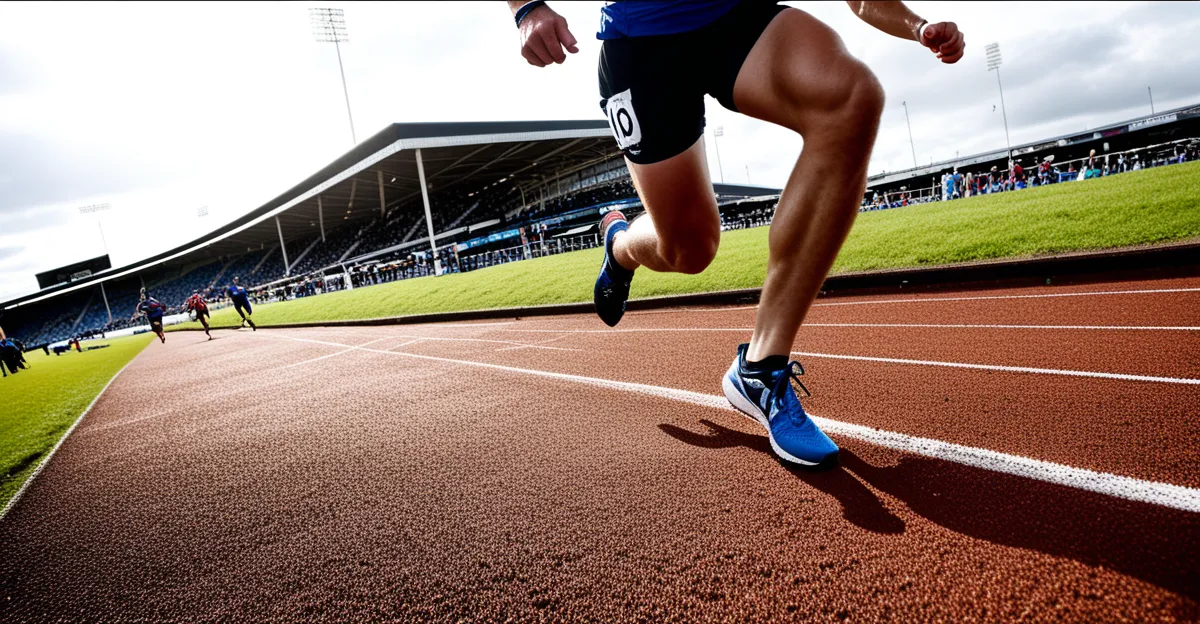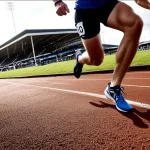Foundational Strategies for Athlete Longevity in the UK
Understanding athlete longevity requires recognising the crucial role early career planning plays in extending sports careers. In the UK, structured development pathways are designed to guide athletes from grassroots levels through to elite performance stages. This approach not only enhances skill acquisition but also mitigates burnout and injury risks that could shorten a career.
UK sports organisations place considerable emphasis on multi-disciplinary support systems. These teams typically include coaches, medical professionals, nutritionists, and sports psychologists working together to address all facets of an athlete’s development. Such collaboration ensures that long-term athlete health is prioritised, enabling the identification and management of physical and psychological challenges proactively.
Also read : What Unique Factors Make UK Sports A Global Influencer?
Moreover, tailored performance monitoring is integral to sustaining athlete longevity. Throughout an athlete’s career, continuous data collection and analysis help customise training loads and recovery needs. This bespoke method allows for early detection of fatigue or injury indicators, fostering longevity in UK sports careers by adapting programs appropriately. This precise monitoring aligns with best practices in athlete care, promoting sustained high performance over time.
Injury Prevention and Cutting-edge Sports Science Techniques
Injury prevention is a cornerstone of extending athlete longevity and maintaining peak performance in UK sports careers. Central to this is the implementation of comprehensive injury risk assessment protocols that identify individual vulnerabilities early. These assessments guide personalised conditioning programmes tailored to strengthen at-risk areas, reducing injury incidence and downtime.
Additional reading : What Innovations in UK Sports Might Shape the Future?
Advanced sports science UK methodologies leverage technology such as motion capture and biomechanical analysis to evaluate movement patterns. These technologies detect imbalances or stress points that might lead to injury, allowing interventions before problems escalate. Integrating such sports technology into routine athlete care practices elevates preventive strategies, directly benefiting long-term athlete health.
Moreover, elite UK sport bodies collaborate closely with research institutions to translate scientific discoveries into practical applications. This partnership fuels innovation in injury prevention techniques, ensuring that athlete care practices evolve alongside cutting-edge research. As a result, athletes receive care informed by the latest evidence, fostering safer training environments and extending their careers effectively.
Nutrition and Recovery Protocols for Extended Performance
Proper sports nutrition and effective recovery protocols are essential pillars for achieving enduring performance longevity in UK athletes. Personalised nutrition plans, crafted and supervised by accredited UK sports dietitians, ensure that athletes meet their specific macronutrient and micronutrient requirements. These tailored plans consider the demands of training cycles, competition schedules, and individual metabolic responses, allowing for optimal energy availability and muscle repair.
Recovery protocols integrate evidence-based strategies such as prioritising quality sleep, combining physiotherapy techniques, and managing training loads meticulously. For example, monitoring sleep patterns helps identify deficits that could impair recovery, prompting interventions to enhance sleep hygiene. Physiotherapy supports soft tissue repair and injury prevention through targeted treatments, while load management adjusts intensity and volume to avoid overtraining syndrome.
Utilising recovery data through wearable technology and physiological markers enables continuous refinement of these protocols. Regular assessment of biomarkers like heart rate variability and muscle soreness informs adaptive changes that maintain athlete readiness and health. Integrating this data-driven approach alongside personalised nutrition and recovery measures cultivates an environment conducive to sustained high-level performance and longevity within UK sports careers.
Holistic Mental Health and Athlete Well-being
Supporting athlete mental health is fundamental to sustaining performance and longevity in UK sports careers. UK sports programmes now routinely integrate psychological services, including counselling and mental skills coaching, to address stress, anxiety, and pressure that athletes commonly face. This proactive mental health support helps athletes develop resilience and maintain motivation throughout their careers.
Understanding that well-being extends beyond physical health, key initiatives promote balance by encouraging life outside sport. Structured support helps athletes manage transitions, such as moving between competition phases or planning post-sport careers, reducing mental strain that can shorten careers. For example, sports psychologists work closely with athletes to build coping strategies tailored to individual needs, fostering long-term athlete health.
Leading UK sport organisations have pioneered these holistic approaches by embedding mental health resources within multidisciplinary teams. They offer workshops on mental well-being and create safe environments where athletes can openly discuss challenges. By normalising mental health care alongside physical training, these best practices cultivate a culture where athlete well-being is prioritised, ultimately enhancing career sustainability and overall life quality.
Best Practices and Policy Developments in UK Sports
UK sports policy has evolved significantly to prioritise athlete support and enhance athlete longevity. Central to these developments are comprehensive welfare frameworks that establish safeguarding measures aimed at protecting athletes throughout their careers. These policies ensure that health, safety, and well-being remain at the forefront of athletic development, addressing both physical and psychological needs.
Recent research has directly influenced the refinement of longevity best practices within UK sports. Empirical studies highlight critical factors such as optimal training loads, mental health integration, and injury prevention protocols. By incorporating evidence-based findings into policy, UK sports organisations have created consistent guidelines that promote sustainable careers for athletes.
Success stories and role models from professional UK sport further exemplify the impact of these policies. Athletes who have thrived under supportive frameworks offer valuable insights into effective longevity strategies. Their experiences underscore the importance of structured athlete support systems and long-term planning, reinforcing policy effectiveness.
In summary, the integration of athlete welfare policies, ongoing research, and celebrated role models form a robust foundation. This synergy drives continuous improvement in UK sports practices aimed at fostering long-term athlete health and career sustainability.











